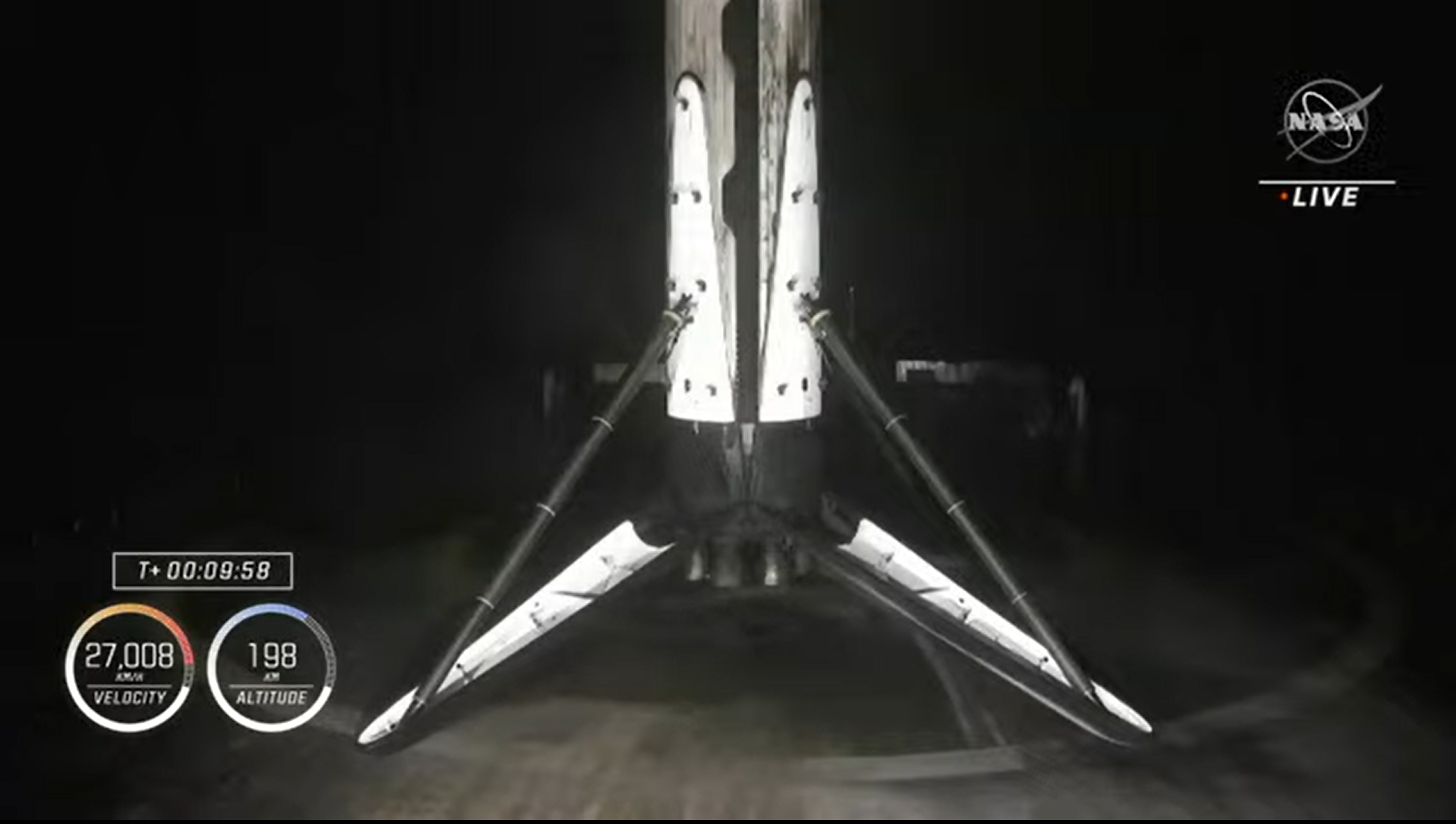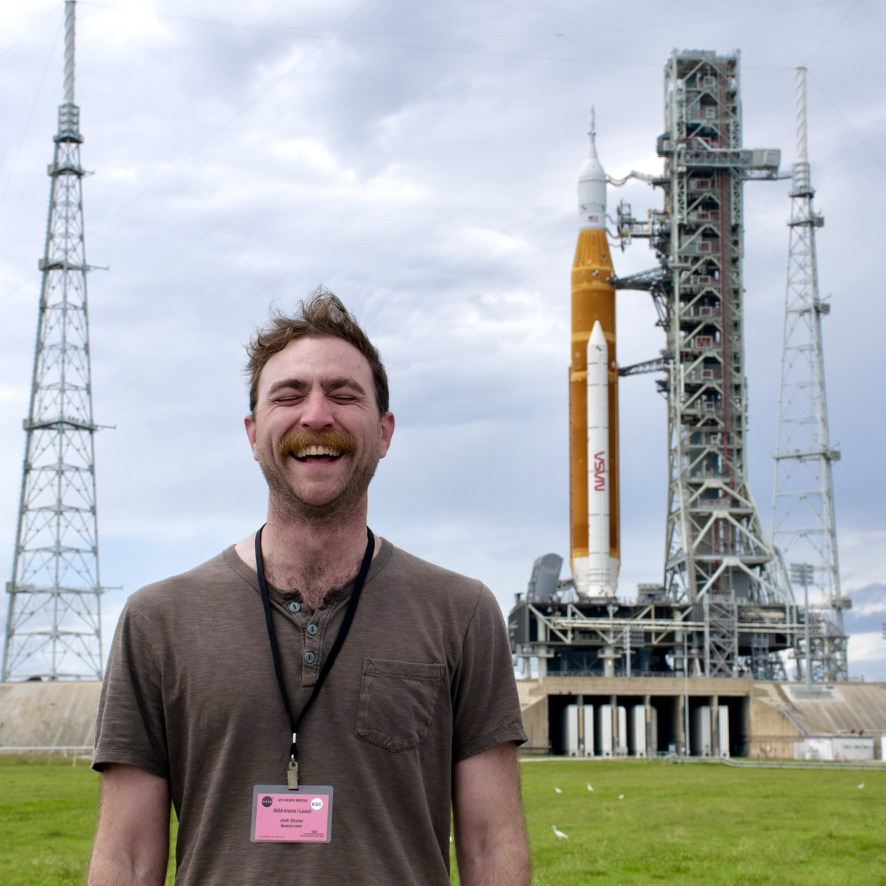SpaceX launches Crew-6 astronaut mission to space station for NASA
Crew-6 is expected to dock with the International Space Station early Friday morning (March 3).
SpaceX's Crew-6 mission for NASA launched early Thursday morning (March 2) with a complement of four astronauts, on course to rendezvous with the International Space Station (ISS) in a little over 24 hours.
A Falcon 9 rocket lifted off from Pad 39A at NASA's Kennedy Space Center in Florida at 12:34 a.m. (0534 GMT) on Thursday, launching SpaceX's ninth crewed flight to date, and the fourth for the Crew Dragon capsule Endeavour. Riding Endeavour is an international crew that will replace the four Crew-5 astronauts currently inhabiting the ISS.
Roaring to life above the quiet Florida Space Coast, the Falcon 9 rocket lit up the early morning skies on its way to loft the crew to the orbital lab.
Related: Meet the SpaceX Crew-6 astronauts launching to the International Space Station on Feb. 26
More: Live updates about SpaceX's Crew-6 mission for NASA

About two minutes and 40 seconds after liftoff, the Falcon 9's first stage separated and began coming back down to Earth. The booster performed a series of engine burns, then landed on SpaceX's droneship Just Read the Instructions 9.5 minutes after launch. It was the first liftoff and touchdown of this booster — a relative rarity for SpaceX, which is known for its extensive rocket reuse.
The rocket's upper stage, meanwhile, continued powering Endeavour into orbit. A little more than 12 minutes after launch, the capsule separated from the Falcon 9's upper stage and began flying freely.
"Just want to say, as a rookie flyer, that was one heck of ride. Thank you!" NASA astronaut Woody Hoburg, the Crew-6 pilot, told the SpaceX launch team shortly after spacecraft separation.
Breaking space news, the latest updates on rocket launches, skywatching events and more!
Crew Dragon is "an absolute miracle of engineering, and I just feel so lucky that I get to fly on this amazing machine," Hoburg added.
Two of Hoburg's crewmates — United Arab Emirates (UAE) spaceflyer Sultan Al Neyadi and cosmonaut Andrey Fedyaev — are first-time space travelers as well. But the mission's commander, NASA astronaut Stephen Bowen, has already visited the ISS three times during his career, though never for as long a stay as the group's upcoming six-month rotation.
This is the ninth overall crewed flight for SpaceX, and its sixth operational mission for NASA's Commercial Crew program. Crew Dragon Endeavour has now launched on four crewed missions for SpaceX. The other three are the Demo-2 crew test flight in 2020, Crew-2 in 2021 and the all-private Axiom Mission-1 in 2022.

Crew-6's diverse international complement comes as a result of NASA's crew swap agreement with the Russian space agency Roscosmos and a deal with Houston-based company Axiom Space, which partnered with the UAE's Mohammed bin Rashid Space Center to fill a seat.
Crew-6 is scheduled to arrive at the space station at 1:17 a.m. EST (0617 GMT) on Friday (March 3) and have a brief overlap with the members of Crew-5, who are scheduled to depart the ISS about six days from now. The Crew-6 quartet will remain aboard the space station for roughly six months, and then the Crew-7 mission will launch to replace them.
Until then, Hoburg, Bowen, Al Neyadi and Fedyaev will be busy tending to the station's maintenance and ongoing experiment manifest.
NASA and SpaceX first tried to launch Crew-6 early Monday morning (Feb. 27) but scrubbed the attempt about 2.5 minutes before liftoff due to an issue with the ignition fluid that helps light the Falcon 9's first-stage engines. That issue was resolved in time for Thursday's liftoff.
Follow us @Spacedotcom, or on Facebook and Instagram.

Josh Dinner is the Staff Writer for Spaceflight at Space.com. He is a writer and photographer with a passion for science and space exploration, and has been working the space beat since 2016. Josh has covered the evolution of NASA's commercial spaceflight partnerships and crewed missions from the Space Coast, as well as NASA science missions and more. He also enjoys building 1:144-scale model rockets and human-flown spacecraft. Find some of Josh's launch photography on Instagram and his website, and follow him on X, where he mostly posts in haiku.
